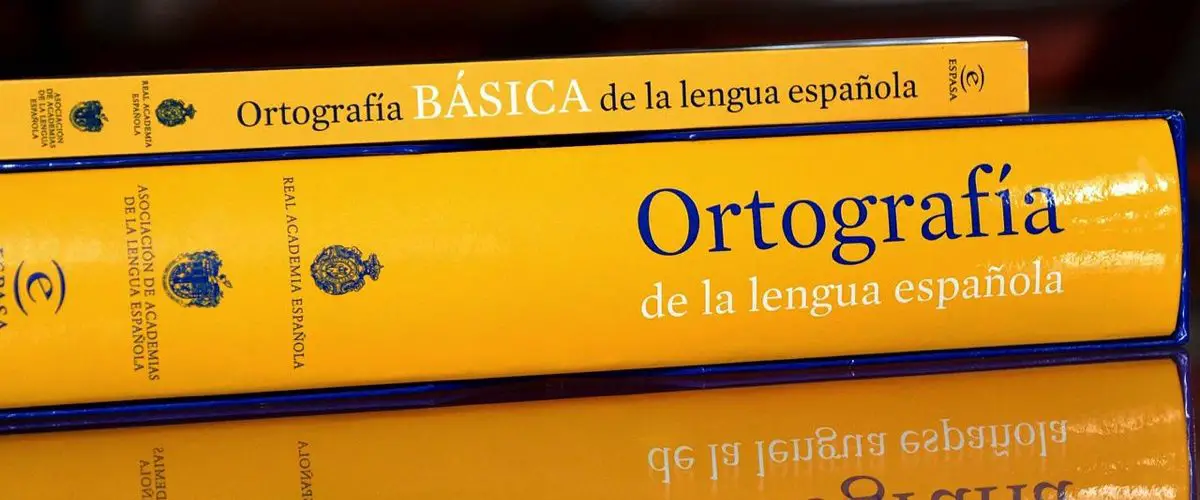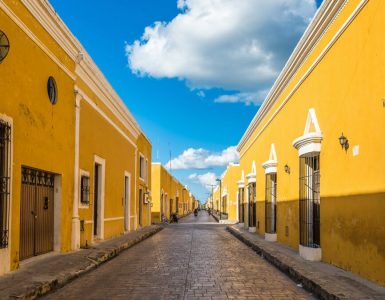Taking advantage of the fact that we are talking about learning languages, we should also mention that there are several ways of saying the word for language in Spanish. It is a very interesting topic because of the etymological richness of Spanish is reflected even in the word itself. Spanish is the mother tongue of more than 300 million people worldwide, being the official language of 20 countries and widely spoken in other areas as well.
Our language is a Romance language of the Indo-European language family, which is why it sounds so similar to Italian and Latin. Spanish as a language originated in the Middle Ages, where it began its evolution to such an extent that Castilian and Andalusian emerged in the Iberian Peninsula before being later imposed on the Spanish colonies of the Americas.
Now that we know a little more about its origin and why it is spoken in Latin countries and Spain, we will mention the different ways in which we say language in Spanish, along with their etymological roots and what the difference is between each of them.
Lenguaje – Language
Etymologically comes from lingua, which is tongue, and refers to the sounds articulated by our tongue to communicate with other people, whether they be feelings, thoughts or situations. It is the most common way of referring to language and is even the name of the subject “Spanish Language (lenguaje) & Literature” in schools and high schools. It is also the word used to designate any other foreign language, such as sign language, computer language, cryptic language, etc.
Lengua – Tongue
Etymologically, it simply means tongue, referring to the organ with which we eat, speak and articulate sounds.
Lengua isn’t exactly the same as lenguaje as it is the Spanish word for tongue, which is the organ we use to articulate the words that make up a language. That said, lengua can also be used as a synonym for language and Spanish words like idioma and habla from which we can obtain expressions like idioma español and lengua española meaning the Spanish language or habla hispana and lengua hispana roughly meaning the same thing.
The term lengua argentina does not exist, because in Argentina they speak lenguaje español, and as such, refer to their language as lengua española even though they are not from Spain because the words articulated by the tongue of all Argentines are those of the Spanish language.
Idioma – Idiom
Many of us use idiom as a synonym for language, but this is not entirely true. Idioma comes from the Latin idios which means proper or special. In this sense, idiom means “language of a country or nation” (specifically). Leaving aside its true meaning, it refers to the particular language of a community, either oral or written; it can also refer to the way of speaking of a particular person or in specific situations.
Thus, Spanish idiom would not be the same as Spanish language, because the first one would refer to the Spanish way of speaking, including its idioms, colloquialisms and so on, while the Spanish language refers to the whole set that makes up the Spanish language, including all the countries that speak it as their mother tongue.
Dialecto – Dialect
It comes from the Greek dialektos which means discussion and way of speaking. In this sense, dialect refers to the way of speaking of a community within a country, becoming a language derived from a specific language. We could then say the following:
| Spanish | English |
|---|---|
| Dialecto andaluz | Dialect spoken in Andalucia, Spain |
| Dialecto veracruzano | Dialect spoken in Veracruz, Mexico |
| Dialecto toscano | Dialect spoken in Toscana. Italia |
| Dialecto limeño | Dialect spoken in Lima, Perú |
| Dialecto flamenco | Dialect spoken in the Netherlands |
| Dialecto rioplatense | Dialect spoken in Argentina and Uruguay |
Jerga – Jargon
It comes from the French jargon, which referred to the chirping of birds and the way in which they emit sounds to communicate with each other. Hence, in addition to referring to a set of specialized terms (language) of a social group that shares common interests or occupations, it also refers to a very difficult to understand dialect spoken by a very small community.
An example is baby jargon, which is unintelligible to us adults, while they are able to understand each other. Another example is medical jargon which, despite speaking the same language as a large population, can only be understood by health professionals such as doctors, nurses and scientists.
Habla – Speech
It is the faculty of conversing that we humans have. This is achieved through the combination of tongue, language, idiom and, if applicable, jargon. So habla is in general the ability to articulate all these global concepts to communicate with other people and make oneself understood.
Argot – Slang
Argot is mainly used to refer to slang in Spanish but there is also some overlap with the word jerga – referenced above. Any language that is being used by a specific group and only known to them, whether they be professionals or youngsters or even people from a certain area of a Spanish speaking country, can be described as argot.
Here are a few examples of argot and where and when they are used:
| Spanish | English | Locality/Group |
|---|---|---|
| Toche | Fool | Venezuela – Los Andes |
| Chibolo | Child | Perú – Central Coast |
| Trastanuta | Three thousand times triple son of a bitch | Colombia – Cúcuta |
| Remardición | Doubly cursed | Venezuela – Zulia |
| Acoquinao | Screwed | Venezuela – Falcón |
| Paloma | Pigeon – the cross on a ship’s masthead | Sailors |
| Fiambre | Cold meat – a corpse | Police |
| Ciclosporina | Cyclosporine – drug addict | Medical |
Léxico – Lexicon
The lexicon differs from language for one simple reason. Since lexicon only deals with the set of words that make up a language, while language includes any other articulation such as onomatopoeia. That is why we could say that babies and mutes do not have a lexicon, however, they do have their own language, such as babbling in the case of babies and sign language in the case of deaf people.
Caló – Gypsy slang
Caló is the language of the Spanish gypsies, who are characterized by an uncultured lexicon from a grammatical point of view. The impact of this misuse of words in caló led to this term being given to any colloquial language characterized by uncultured and misused language, both verbally and in writing. An example is Venezuelan Caló, which adapted words such as coroto and macundales due to the mispronunciation of Corot and Mac & Dales.
According to Angel Rosenblat, the etymology of corotos comes from the fact that one day President Antonio Guzmán Blanco brought a canvas back from Paris by Camille Corot, the famous French landscape painter. During a move, the general used to order the people that carried the things to “Be careful with the Corot!”, referring to the painting that they were going to move. The maids began to make fun of the general’s coroto, and the expression was extended to more diverse objects, so that now a coroto refers to any object, even if we primarily refer to kitchen utensils such as plates, cutlery and pots. Example: Go scrub the corotos!
On the other hand, macundales came from a corruption of the name for the Mack & Dales brand, which were North American tools brought to Venezuela when mining and oil exploitation first began. At the end of the journey, they asked the workers to pick up their tools, telling them: “Pick up your Mack & Dales” and, being peasant workers who did not understand English, it was transformed to such an extent that it became: “Pick up your macundales“, referring now to objects, specifically tools. Example: Grab your mancundales and get out of the house right now!
Germanía – Slang of a brotherhood
Germanía comes from the Catalan germá which comes from the Latin meaning older brother. It is a group-specific slang or secret code used by criminals, thieves or a brotherhood that is exclusive to them and not understood by outsiders. An example would be the language spoken by a group of drug traffickers, like the Jalisco cartel in Mexico. Their slang cannot be the same as that of another gang so as it is hard to understand what they are talking about.
I hope these examples and explanations have helped you understand the various ways of saying language in Spanish, as well as their differences, similarities and usage.










Add comment